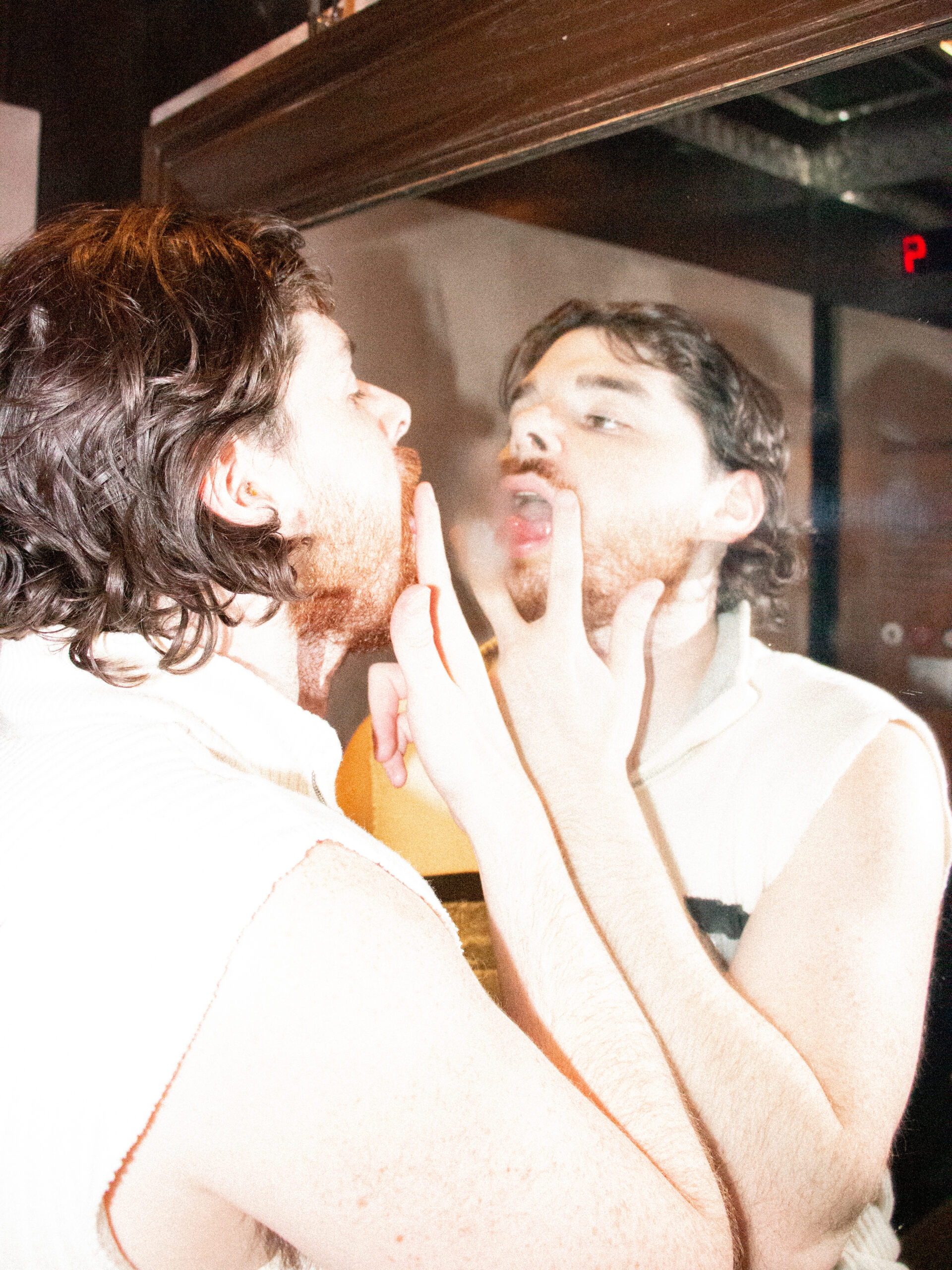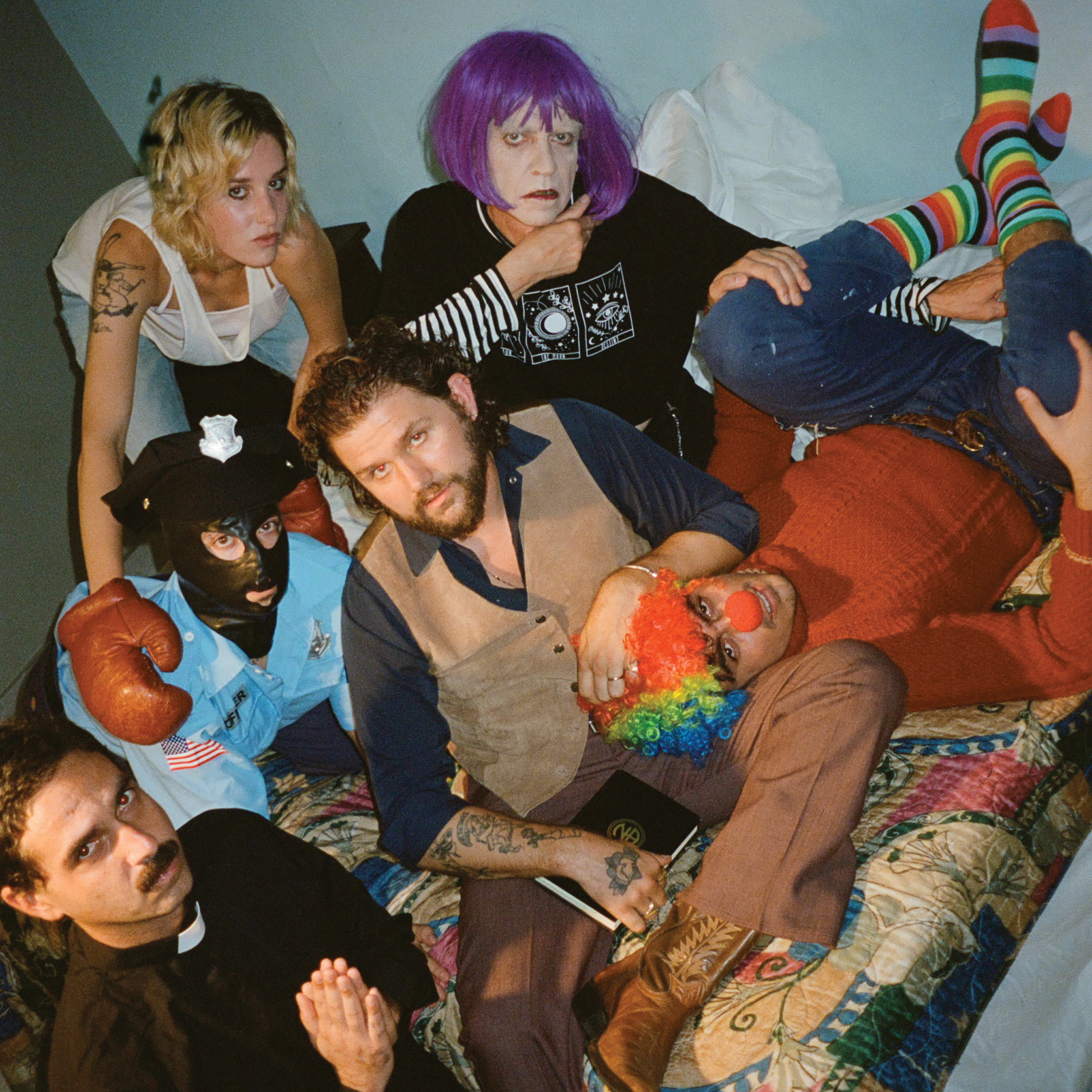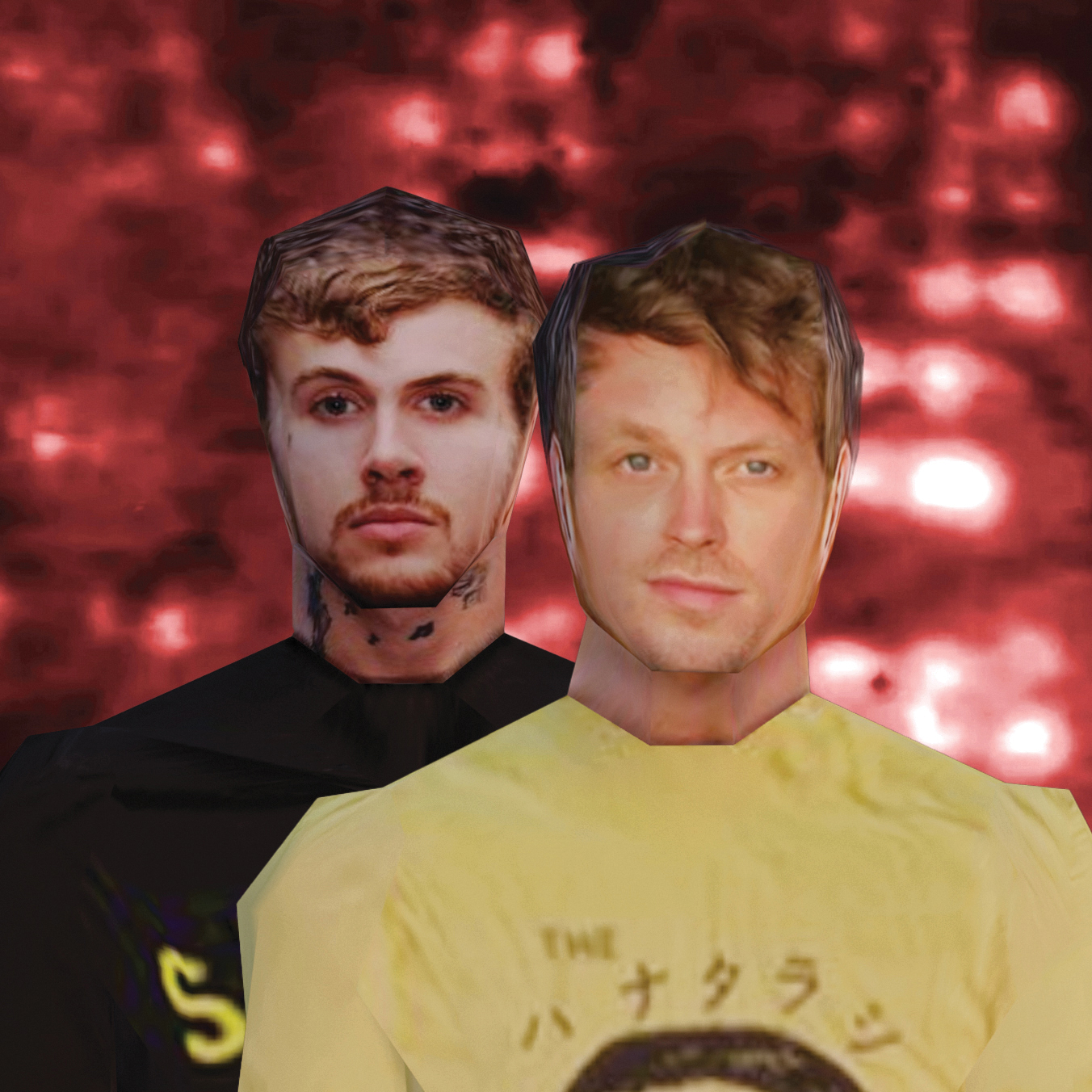For the past decade, artist, writer, and magick practitioner Alex Kazemi has been working on his debut novel New Millennium Boyz, which began as a viral Tumblr sensation in 2013 when Kazemi released a 50-page excerpt of Yours Truly, Brad Sela, a sort of proto-NMB that earned him a book deal with MTV. Shit happens, the book never came out, and Kazemi continued to work on NMB in the background while tending to other fascinating media projects: a 2015 Snapchat short film (titled Snapchat: Mudditchgirl91), an Insta campaign for Marilyn Manson’s Heaven Upside Down, the 2020 release of Madonna-endorsed Pop Magick: A Simple Guide to Bending Your Reality.
///
New Millennium Boyz is finally out this month (sep. 2023), published by Permuted Press. As a millennial boy myself, I loved it, of course. NMB tells the story of 17-year-old Brad Sela and his complete self-destruction after befriending Lusif and Shane, a couple of MTV-fried Hot Topic goths whose richkid suburban malaise sets them close on the heels of the previous school year’s Columbine shooters. Addictive and deliriously paced, NMB immediately struck me as true to not only the Y2K coming-of-age moment but the raunchy initiation process of teenage boyhood that has been less and less honestly explored over the past decade.
///
In this interview, Alex and I discuss some of the behind-the-scenes action of NMB, his evolving thoughts on Y2K and teenage rebellion, and the future of the new millennium boy.
Photos by Lydia Ren @lydiaren
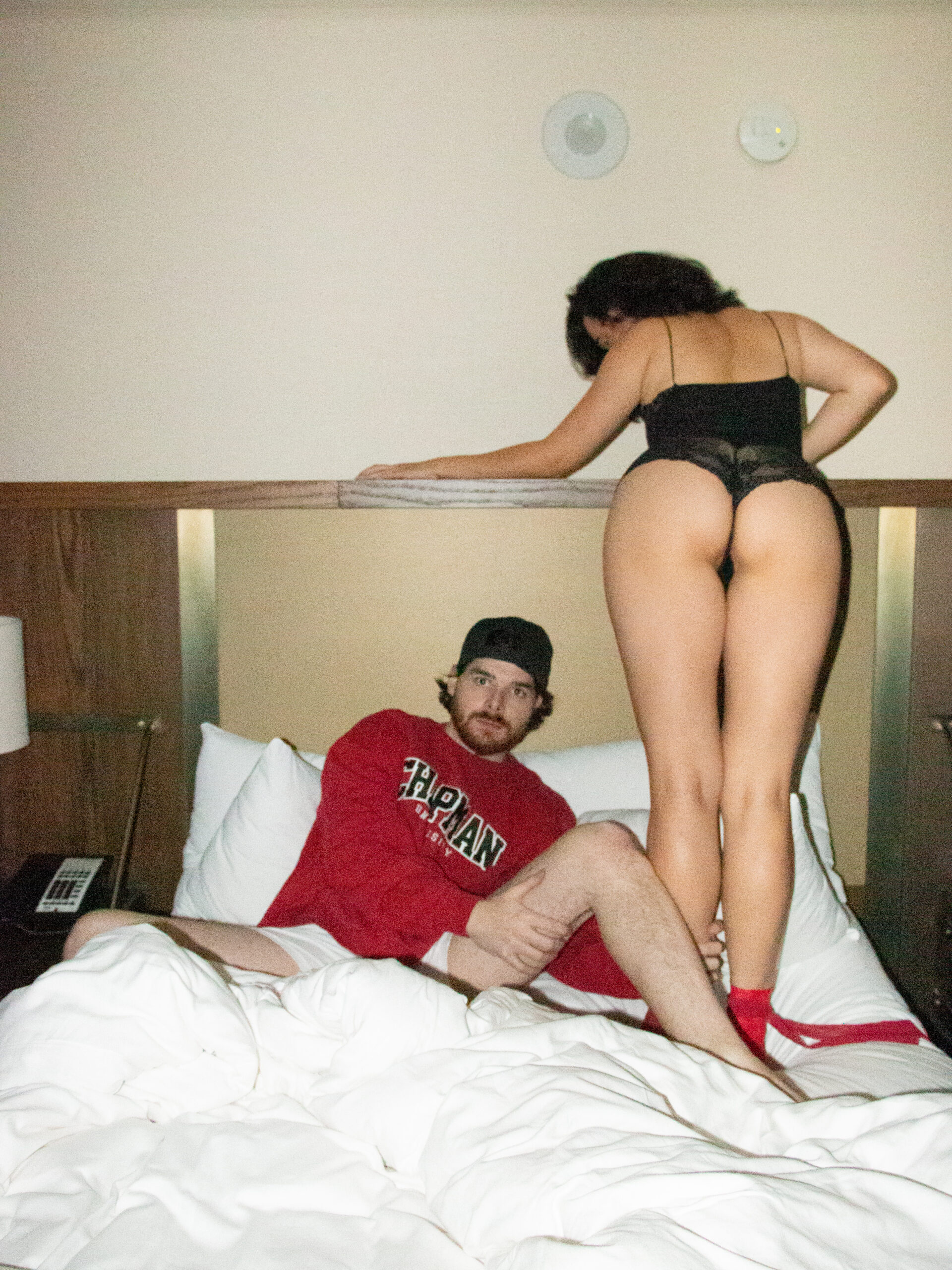
First off, you’ve been working on New Millennial Boyz for a decade — how does it feel to finally have it out?
I feel like I’ve been holding a load in and I finally just busted a nut onto the world. Does that make sense? Maybe not. I’m incredibly grateful that the tormenting feeling of “I could be working on my novel” is not looming over me anymore. It definitely feels very fucking good. A huge relief. The biggest relief. Total elation.
As a millennial boy (born 1991), NMB hit really close to home and had me feeling depressingly nostalgic for the turn of the millennium, despite knowing that this book is satirizing Y2K obsession. My print magazine is certainly indebted to this era — e.g., one of my most prized possessions is the Kate Moss February 1999 issue of Dazed & Confused, whose influence can be seen (at least by me) throughout much of the design of AMERICAN VULGARIA. Having said that, I’m happy you wrote this book with the intent of taking the piss out of Y2K nostalgia bait — and that this is what you came up with. I had a blast reading it. Clearly, you’ve done a lot of research into what it was like to be a high school teen boy in ‘99/’00, a time I think both you and I were too young to meaningfully grasp as it was happening, but I’m curious how (or if) your view of Y2K changed over the past decade.
I definitely can understand how owning a Kate Moss issue of Dazed is a prized possession for you, and how this golden age of fashion, art and culture almost feels like a fever dream that never happened. It’s never not shocking encountering works from that era and feeling this sense of curiosity, joy and excitement. I agree with you, I’m definitely taking the piss out of Y2K nostalgia, because someone had to do it. I mean, now is the time.
My view of Y2K has definitely changed over the past decade. I mean when I started the project, it was very much from this idea of “life would’ve been better back then.” I viewed the 1990s as an ephemeral euphoric period in time. As I dug beneath a lot of the surfaces, maybe just from so much sensory overload from the research, I barely feel those fake-nostalgic feelings for this era anymore.
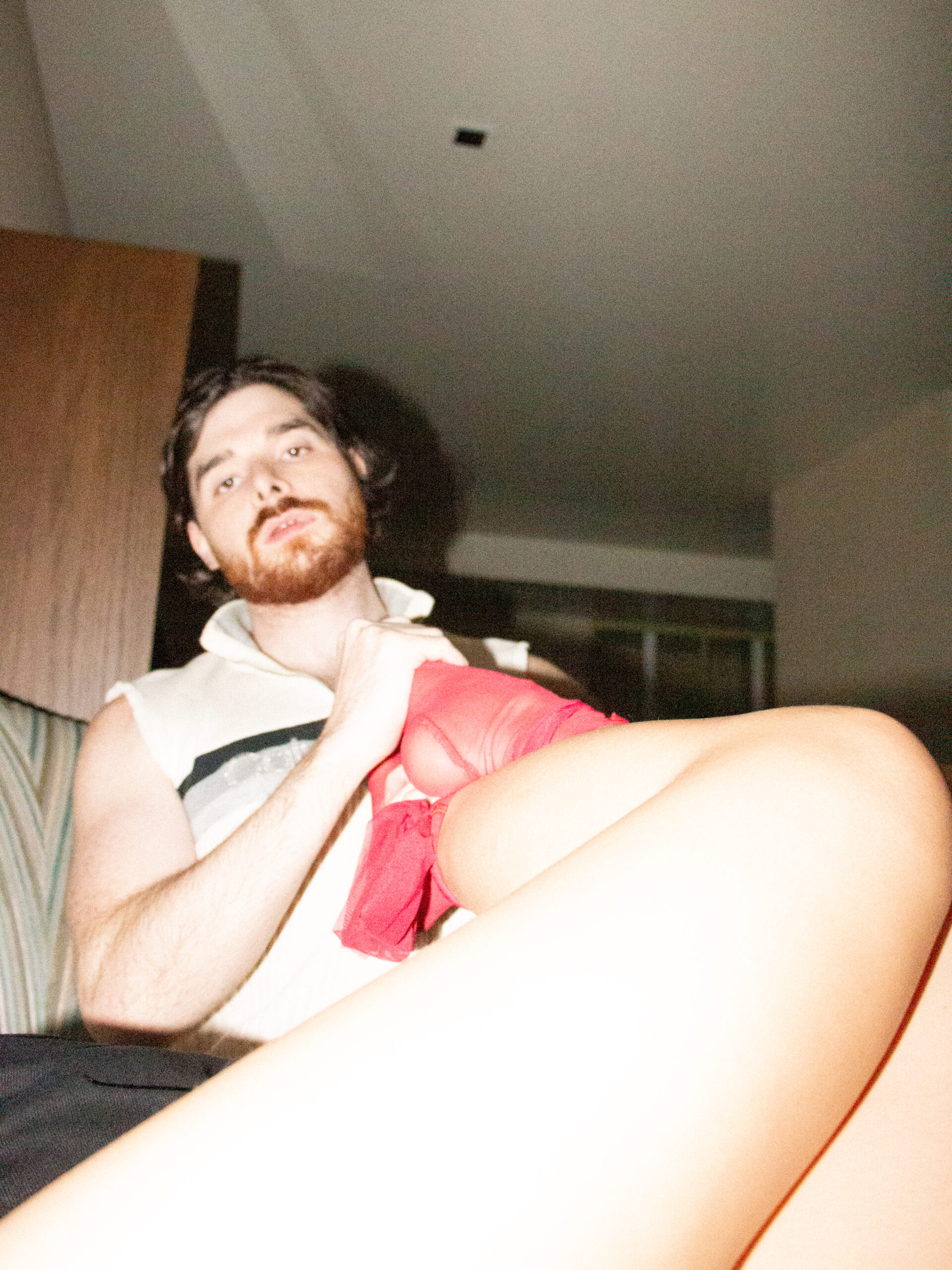
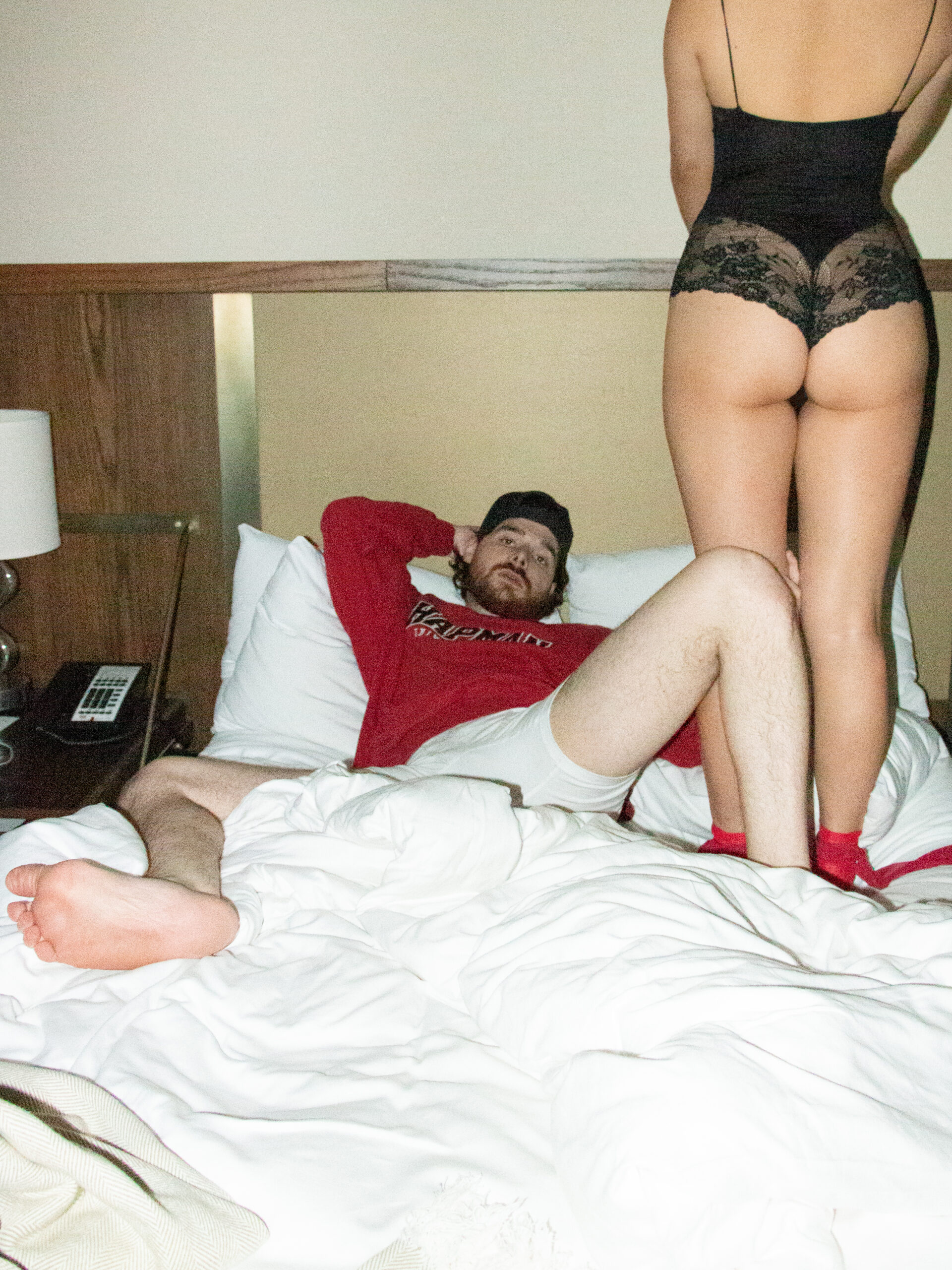
In your Lit Reactor interview, Gabriel Hart asked if you agreed with NMB being called “the most dangerous book of the year.” You essentially said no and that even marketing a book as “dangerous” or “high-risk literature” anymore, especially after Dennis Cooper, Bret Easton Ellis, and Palahniuk, is cringe. I feel the same, though I do have to say: after I finished NMB, I had a horrible night of bad dreams. As funny as the book is, it has a palpable sense of dread — the ending left a pit in my stomach. Being on the other side of NMB, it’s wild to me that you’ve been dwelling on this story — on Columbine, on Brad Sela’s downfall, on Lusif — for the past decade. Even though mainstream lit is no longer conducive to “dangerous literature,” did writing NMB ever freak you out?
Nightmares after reading NMB is a common reaction, which is strange to me, but I get it. I have a kind of “blindness” towards the high emotionality or darkness of the project because dealing with those feelings had to become a mathematical process with the rewrites and edits. A level of distance was required, but oh absolutely, writing this book freaked me out. Especially when I had to write about darker, low vibrational entities. It’s also not exactly joyful to wake up every morning to work on scenes that are super unsettling. I wasn’t like “yippee, another morning of animal torture.” If you are asking me: did writing NMB rob me of experiencing my life and the world around me, with more peace and joy? Absolutely. I understand that this was required, but oh yeah.
There’s a dreamy quality to NMB that’s hard to pin down but becomes noticeable when you cruise through 50 pages of the boys’ relentlessly hysterical dialogue about whatever high school bullshit, MTV musings, Fiona Apple sob stories, Rose McGowan’s tits, Shane’s emotional spasms, Hot Topic satanism — and so on — and suddenly realize how much Brad has subtly, but drastically transformed, to the point that, seemingly like Brad himself, you’re wondering how you got here. It’s astonishing how addictive and deliriously paced NMB is — and how true-to-life this feels for how time seems to speed up and slip through the cracks when you’re losing touch with yourself the way Brad is. The pacing does seem meaningful and well-considered, but I’ll pose it as a question: how much of this was deliberate?
It means a lot to me. Bret taught me a term: “smart reader.” I would say you fall into this category. I absolutely was trying to make something feel hypnotic, stylish, immersive, and I was paying homage to the fast-cuts of MTV shows like The Hills and Laguna Beach. I was like, “Okay, instead of Lauren and Lo at Sephora talking about what lipstick to buy,” we’re going to make this, “The boys parked during lunch break and talked shit about Fiona Apple.” I wanted to create fast visceral vignettes. My original vision was just to write a book with dialogue and imagery setting up the scene for the viewer to watch. The pace is supposed to mirror Brad’s loss of self and identity and how he is self-aware of how vapid the destruction he is creating. As you know, I never leave the reader alone about his thoughts of him being the producer of his own-self sabotage.
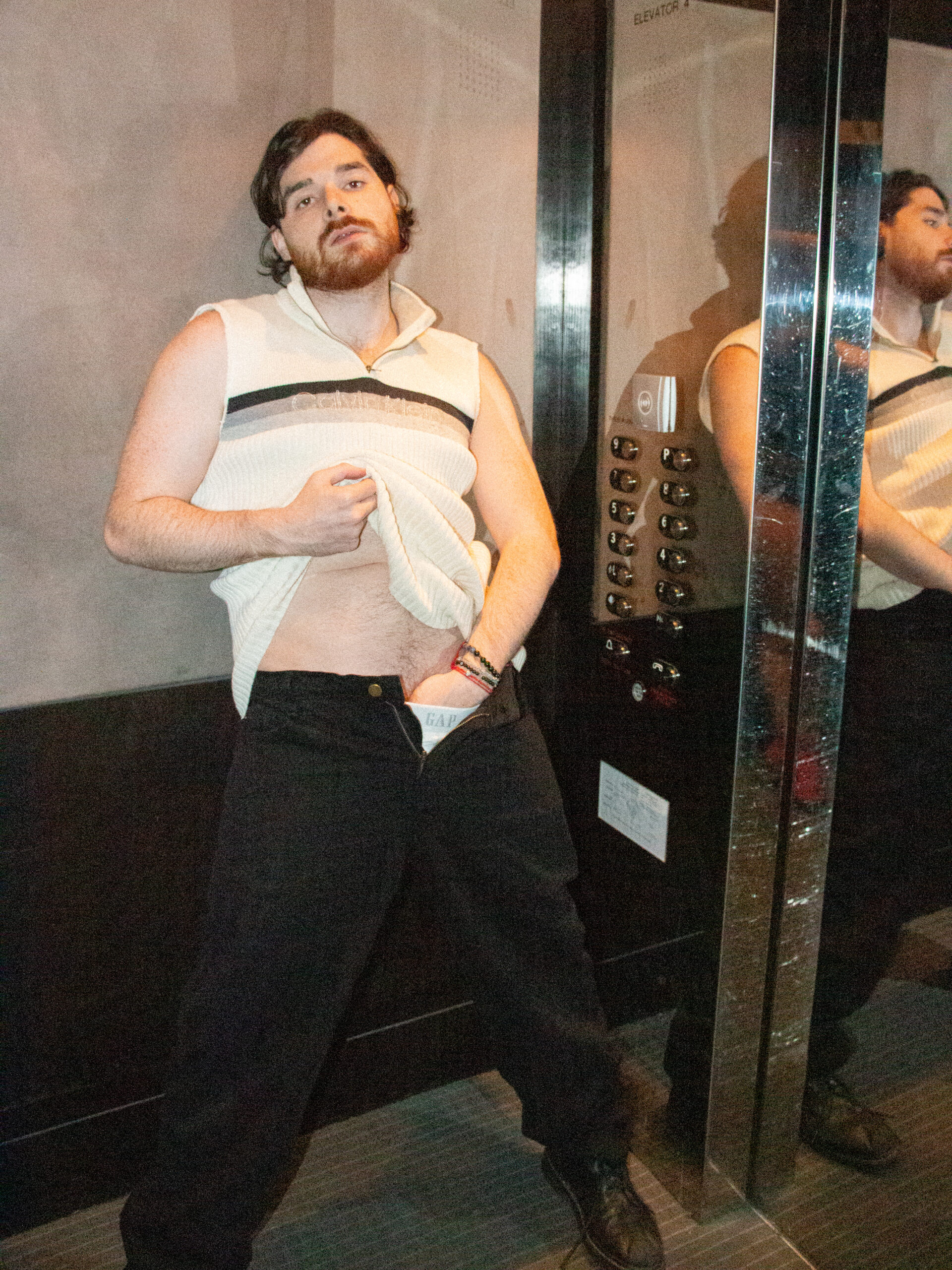
Of the three main boys — Brad, Shane, and Lusif — bad boy Lusif seems to have the most articulate understanding of the type of magick you cover in Pop Magick, and he succeeds accordingly, which speaks to not only the power of magick but the neutrality of magick, as Rose McGowan states in Pop Magick’s foreword: “Magick is neutral—neither good nor evil.” Is there an organization to the flow of magick within NMB or is that all completely left for interpretation?
I think Lusif was a big opportunity for me to share snippets of real stories about black magick. I mean, I know young girls who used The Satanic Bible out of curiosity and totally destroyed their lives by misusing it and evoking entities. I wanted to sort of portray this to the reader — the seduction of satanic aesthetics, demonology, to a teenager who is growing up with a huge rockstar that is encouraging or at least glamorizing this particular aesthetic. I definitely think maybe it was kind of unintentional showing Aurora being interested in Kabbalah, the highest-form of “light” magick, to then contrast that with Lu’s relationship with dark magick. I guess, these extremities are much less neutral due to the cinematic nature of the text.
Marilyn Manson looms over NMB in a way that’s very familiar to anyone who came of age during Columbine, and his presence in your book became all the more fascinating when I learned that you two are friends. How much did your relationship with Manson inform this book?
Yeah, oh absolutely. I mean, I put things Manson has said to me, texts, emails, soundbites into the book because I felt like I had to immortalize our relationship. There is something that Lu says in the snuff film scene, which is a direct quote of something Manson said to me at around 3 in the morning. We aren’t in touch anymore, but my experience with him, personally, was nothing but positive and I’m grateful for his support and artistic guidance, as a very ambitious young man.
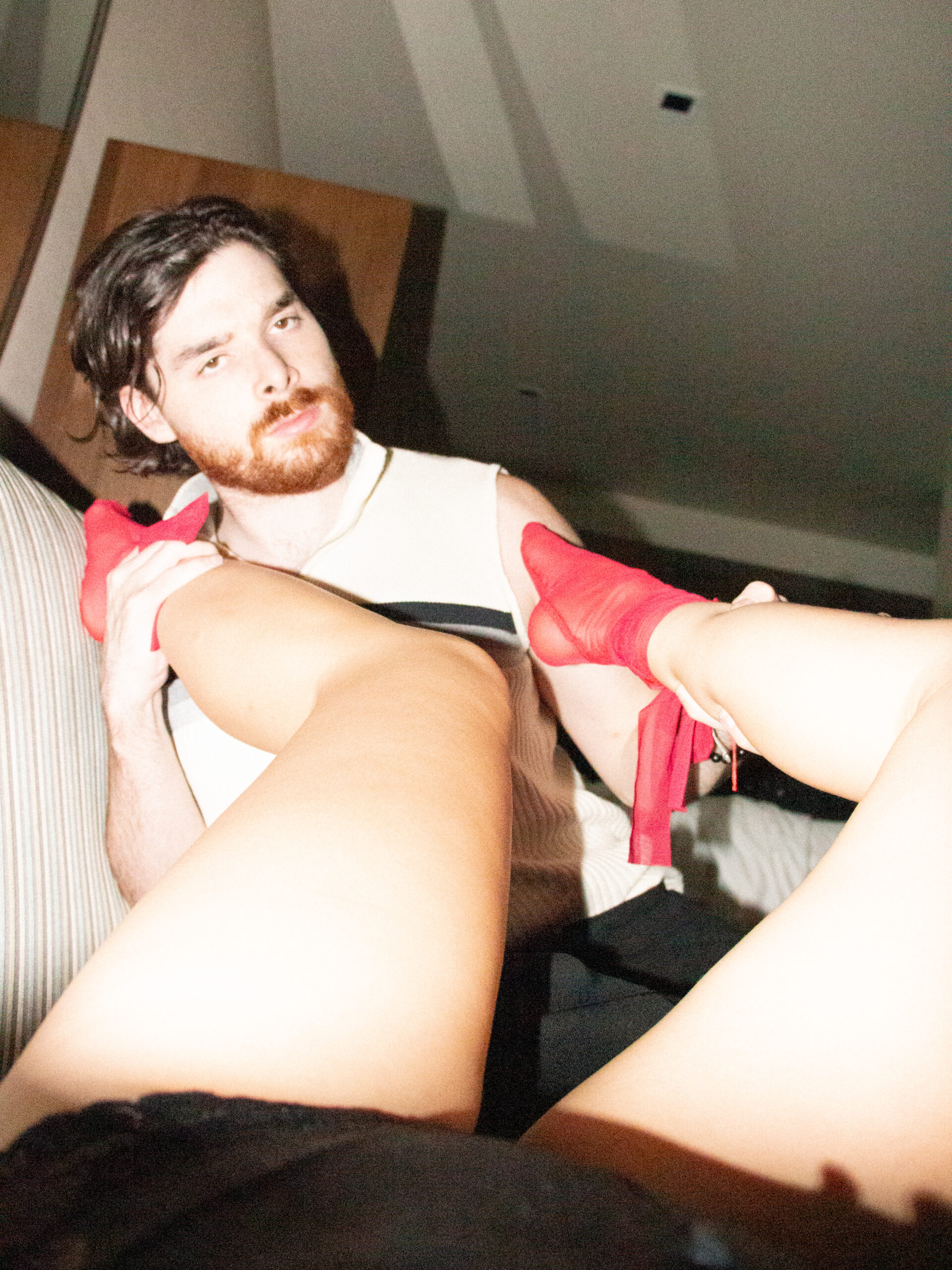
What’s your favorite Marilyn Manson album? Song?
Mechanical Animals really impacted me, mostly because I could relate to the dissociative out-of-body feelings he is talking about on the record. I remember “New Model No. 15” was my fave as a teenager. I love the music videos from that era. I think his inspiration of how LA felt alien to him, or how he felt a sense of “apartness,” is something you can feel in any city. It’s a universal feeling.
Throughout New Millennium Boyz and even in Snapchat: Mudditchgirl91, the 2015 short film you directed, there’s a recurrence of teens committing acts of self-abasement and suicide on camera, as a means of protest, of attention-seeking. The symbiosis between media, entertainment, and self-harm has been endlessly discussed since Christine Chubbuck offed herself on a live TV broadcast in ’74, but I’m curious: what are your thoughts on this?
I think a lot of teenagers, or young people who are particularly so angry at the world and themselves, exist in an unconscious state of trauma with no way to articulate or get help from the people around them. I feel like when they add a camera into the mix and start self-mythologizing, it’s like a way to bite-back at the feeling of being ignored for so long. If you turn it into a spectacle, it will then become real. The boys in the book are trying to make reality feel less dreamlike by harming themselves or others, as a way to escape the numbness. When the Handycam comes into the mix, the images of themselves start to literally become screen-memories. Well, they are fucked at that point.
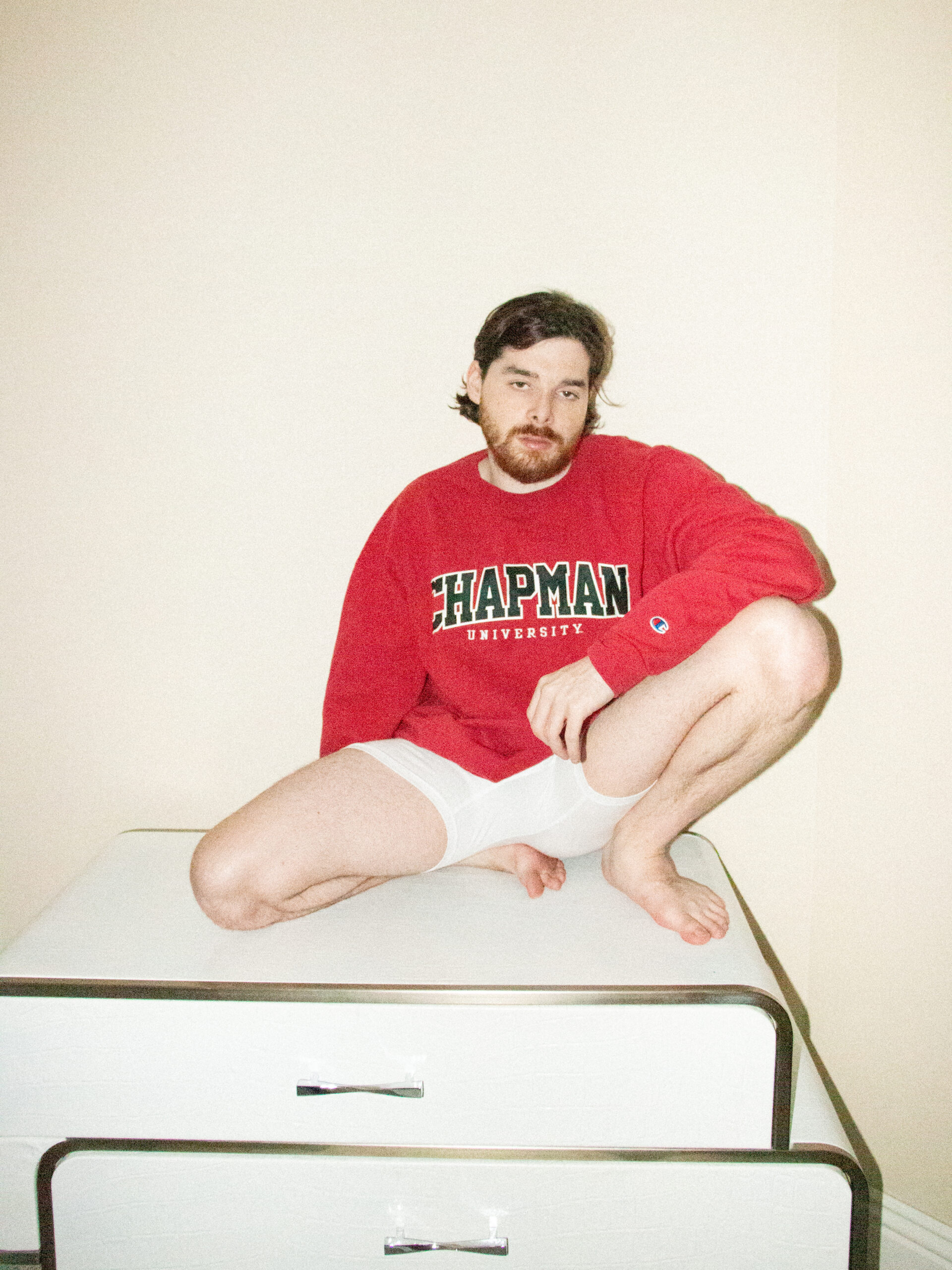
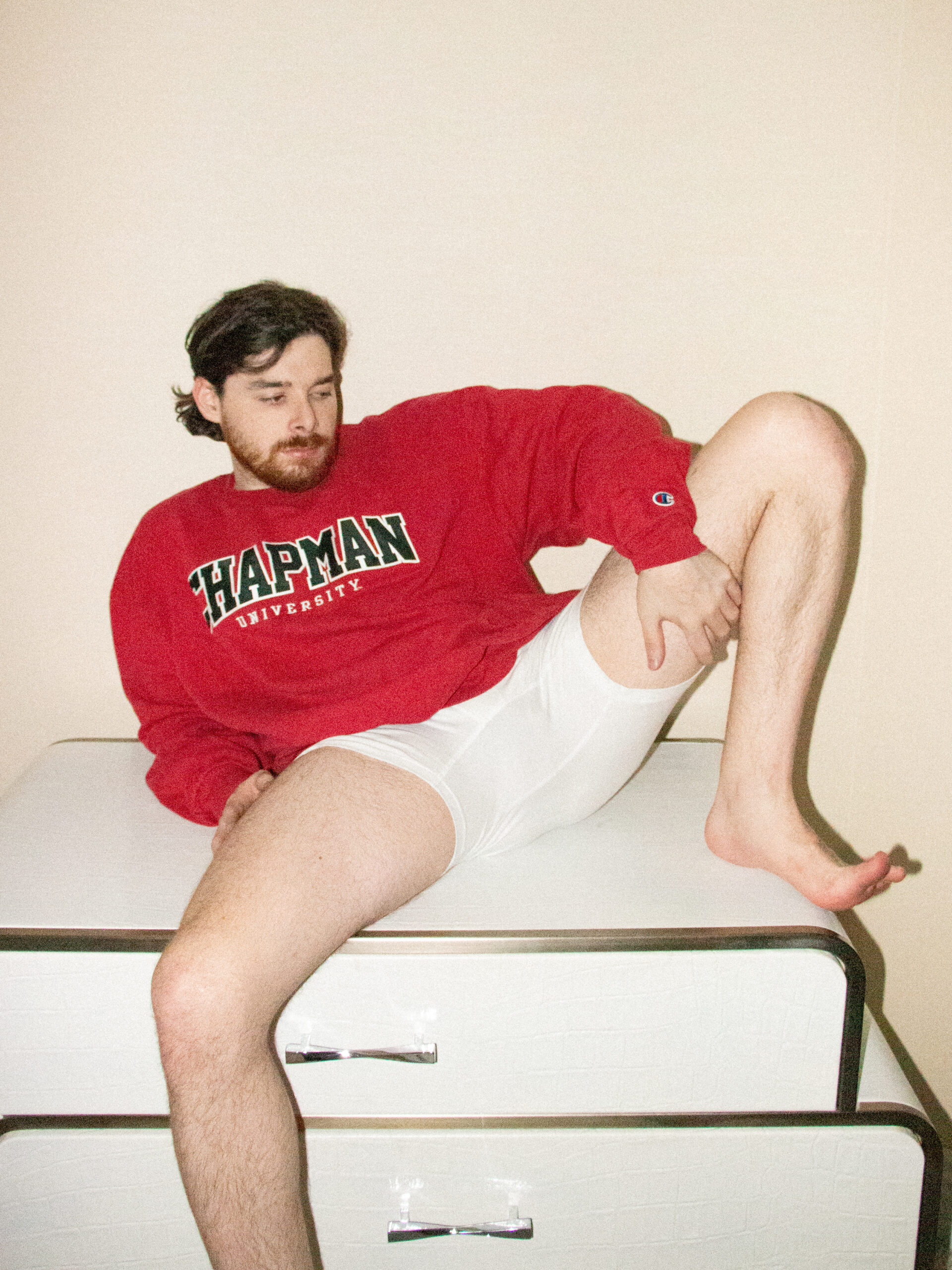
Not that I was totally cognizant of this at the time (I was 5 or 6), but I remember the mid-‘90s rollout of the “New Beetle,” which Volkswagen (re)introduced to tap into boomer nostalgia for the ‘60s counterculture. There’s a funny passage on this in the Fight Club chapter of Brian Raftery’s Best. Movie. Year. Ever.: How 1999 Blew Up The Big Screen, in which Edward Norton, while venting his frustrations on the state of masculinity, consumerism, etc., lamented the Volkswagen revival: “They just wanted to repackage an authentic baby boomer youth experience to us—they don’t even want us to have our own. They just want us to buy sentiment for the sixties, with a little fucking molded flower that you sit in the dashboard.” This relates to something you said on Rare Candy about how Y2K marked the end of pop culture and with that the end of boomers pop-brainwashing millennials through, e.g., MTV scheduled programming, as opposed to today’s watch-wherever-whenever streaming services. The current Y2K obsession that you’re satirizing with NMB is interesting for that reason, because whereas the New Beetle harkened back to a nostalgic moment within an ongoing pop culture, Y2K obsession is looking back to pop culture’s final moment — and with that the start of Bret Easton Ellis’ “End of Empire.” With all that said, do you see a way forward for the new millennium boy? Or nah?
I think the new millennium boy who was born in the early ’80s, early ’90s and mid-’90s has a responsibility to figure out how to navigate their own masculinity and rake through all the ideas of manhood they were indoctrinated into through the height of pop culture during their childhood and figure it out. I think doing a like cosplay of being as offensive and testy as possible might be masculinity for one guy, and then it might not be for the other. Acceptance will be a huge start and not holding onto the past, because it’s not ever going to be 1999 again. I definitely agree with what you are saying: we can empathize with the confusion on how to navigate the “post-everything” era and how this is affecting us as men.
What do you look forward to?
I look forward to any opportunities the universe presents to me where I can help someone, or impact them in an emotional way, or collaborate. I believe desire should always be laced with an element of sharing — but if you want a shameless answer? What am I looking forward to right now… I mean, I’m genuinely excited by the possibilities of New Millennium Boyz emotionally impacting readers and the book bringing joy to people. You know, some reader finishing the novel and feeling: “Wow, I really aligned with this. I felt resonance. I connected with why he did this.”
Get New Millennium Boyz at Permuted Press or Amazon
MORE LYDIA REN:


